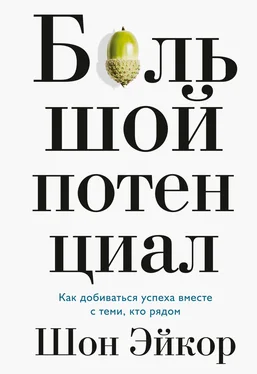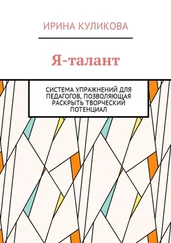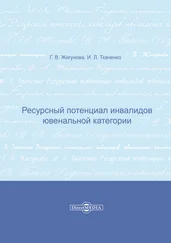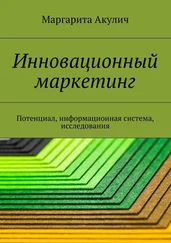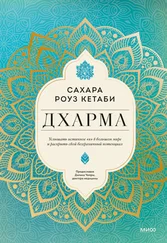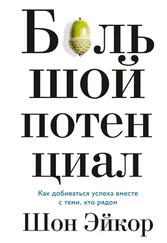Fowler J. H., Nicholas C. A. Dynamic spread of happiness in a large social network: Longitudinal analysis over 20 years in the Framingham Heart Study // BMJ. 2008. Vol. 337: a2338.
Исследование проводилось много лет, так что ученые могли наблюдать, как со временем изменялись усилия, позитивные и негативные эмоции, социальные роли. Прим. ред.
From an online interview: https://www.reddit.com/r/science/comments/5wvz03/science_ama_series_this_is_dr_jenna_watling_neal.
https://psychcentral.com/news/2017/04/01/are-personality-traitscontagious/118486.html.
http://factmyth.com/factoids/edison-never-invented-anything.
Jung D. I. Transformational and transactional leadership and their effects on creativity in groups // Creativity Research Journal. 2001. Vol. 13 (2). P. 185–195.
Carman K. G. Social influences and the private provision of public goods: Evidence from charitable contributions in the workplace. Stanford Institute for Economic Policy Research Discussion Paper 02–13. 2003, January.
Leelawong K., Biswas G. Designing Learning by Teaching Agents: The Betty’s Brain System // International Journal of Artificial Intelligence in Education. 2008. Vol. 18 (3). P. 181–208.
http://ideas.time.com/2011/11/30/the-protege-effect.
https://www.ted.com/talks/margaret_heffernan_why_it_s_time_to_forget_the_pecking_order_at_work.
Wilson D. S. Evolution for Everyone: How Darwin’s Theory Can Change the Way We Think About Our Lives. New York: Delacorte Press, 2007.
https://news.uns.purdue.edu/html4ever/2005/050802.Muir.behavior.html. Как заметил один из тех, кто ест яйца от кур на свободном выгуле, когда все цыплята в загоне, у каждого из них своя территория, и им не из-за чего драться. Когда же птицам давали свободу действий, это оборачивалось кровопролитием, ведь они начинали бороться за б о льшую территорию.
https://evolution-institute.org/article/when-the-strong-outbreedthe-weak-an-interview-with-william-muir.
https://www.nytimes.com/2016/02/28/magazine/what-google-learned-from-its-quest-to-build-the-perfect-team.html?smid=pl-share&_r=0.
Barabási A.-L. Linked: The New Science of Networks. N.Y., 2003.
Senge P. M. The Fifth Discipline: The Art and Practice of the Learning Organization. New York: Doubleday/Currency, 1990.
Любопытно: этот сюжет настолько важен, что он помещен в книгу Бытия, с которой начинается Библия. Господь, сотворивший Адама, создает пары животных и птиц, намекая тем самым, что и человеку нужно жить в паре. Все направления внутри иудаизма, христианства или ислама утверждают, что человеку необходимо общество и социальные связи. А в основе религии лежит любовь к ближнему.
http://www.deseretnews.com/article/695226634/Statistically-speaking-BYU-study-shows-assists-teamwork-important-to-winning-on-court.html.
https://www.forbes.com/2010/08/05/teams-teamwork-individuals-leadership-managing-collaboration.html.
http://www.businessinsider.com/teams-more-productive-than-individuals-2013-8.
https://www.fastcompany.com/3020561/why-women-collaborate-men-work-alone-and-everybodys-mad.
Cross R., Rebele R., Grant A. Collaborative Overload // New York Times. 2016 (Jan — Feb).
Брайсон Б. Краткая история почти всего на свете. М.: АСТ Москва, 2018.
http://money.cnn.com/2017/05/19/technology/ibm-work-at-home/index.html?iid=ob_homepage_tech_pool.
https://www.wsj.com/articles/ibm-a-pioneer-of-remote-work-calls-workers-back-to-the-office-1495108802?mg=id-wsj.
https://qz.com/924167/ibm-remote-work-pioneer-is-calling-thousands-of-employees-back-to-the-office.
Smith T. W. et al. Optimism and pessimism in social context: An interpersonal perspective on resilience and risk // Journal of Research in Personality. 2013. Vol. 47. P. 553–562. doi: 10.1016/j.jrp.2013.04.006.
Andersson M. A. Identity crises in love and at work: Dispositional optimism as a durable personal resource // Social Psychology Quarterly. 2012. Vol. 75. P. 290–309. doi: 10.1177/0190272512451753; Heinonen K. et al. Parents’ optimism is related to their ratings of their children’s behavior // European Journal of Personality. 2006. Vol. 20. P. 421–445. doi: 10.1002/per.601.
Taylor Z. E., Widaman K. F., Robins R. W., Jochem R., Early D. R., Conger R. D. Dispositional optimism: A psychological resource for Mexican-origin mothers experiencing economic stress // Journal of Family Psychology. 2012. Vol. 26 (February). P. 133–139.
Duffy R. D., Bott E. M., Allan B. A., Torrey C. L. Examining a model of life satisfaction among unemployed adults // Journal of Counseling Psychology. 2013. Vol. 60 (1). P. 53–63.
https://hbr.org/2015/09/the-unexpected-influence-of-stories-told-at-work.
https://hbr.org/2017/03/teams-solve-problems-faster-when-theyre-more-cognitively-diverse.
https://hbr.org/2016/09/diverse-teams-feel-less-comfortable-and-thats-why-they-perform-better.
Wiseman R. The Luck Factor. The Scientific Study of the Lucky Mind. L., 2003.
Granovetter M. S . The strength of weak ties // American Journal of Sociology. 1973. Vol. 78. P. 1360–1380.
Barabási Albert-László. Linked: How Everything Is Connected to Everything Else and What It Means for Business, Science, and Everyday Life. New York: Plume, 2003.
https://hbr.org/2011/07/managing-yourself-a-smarter-way-to-network.
Grant A. Give and Take: Why Helping Others Drives Our Success. London, 2014; https://www.amazon.com/Give-Take-Helping-Others-Success/dp/0143124986.
http://www.bmj.com/content/337/bmj.a2338.
https://hbr.org/2011/07/managing-yourself-a-smarter-way-to-network.
Американский психолог, впоследствии ставшая медиумом и оккультной писательницей, автор книги «Курс чудес» (1975). Прим. ред.
Читать дальше
Конец ознакомительного отрывка
Купить книгу
